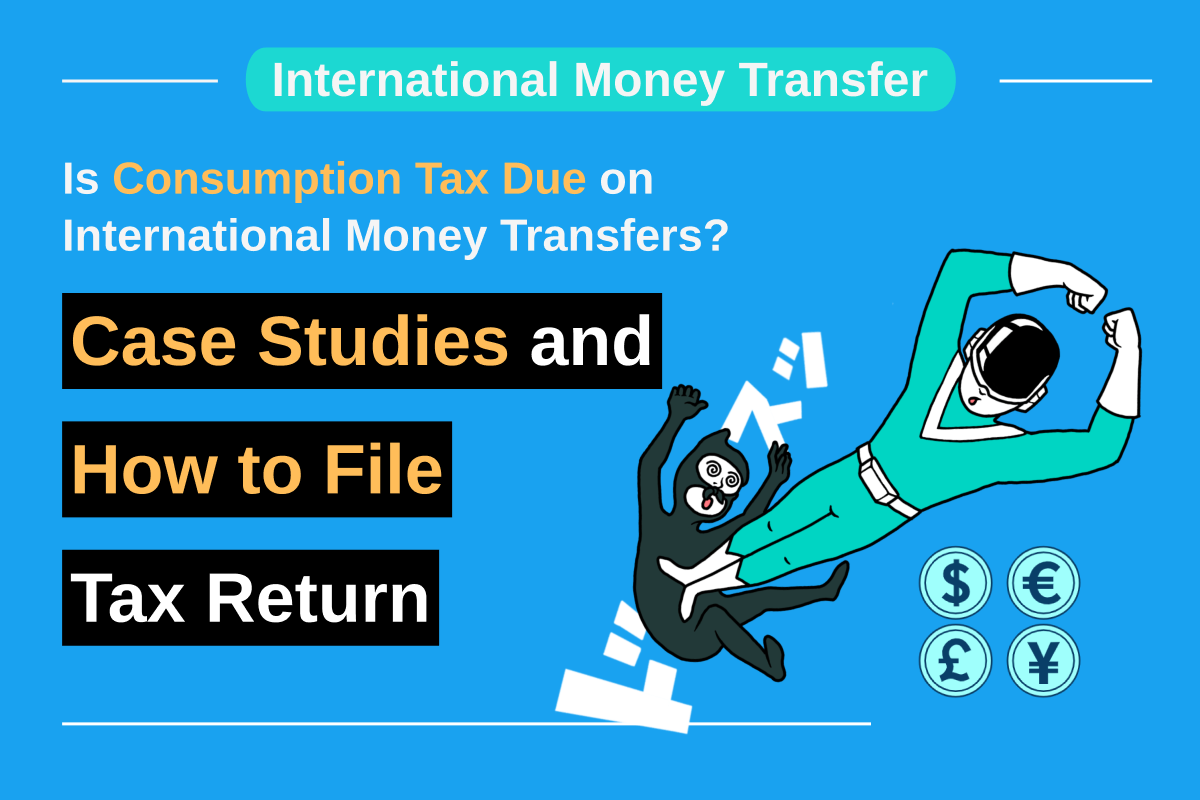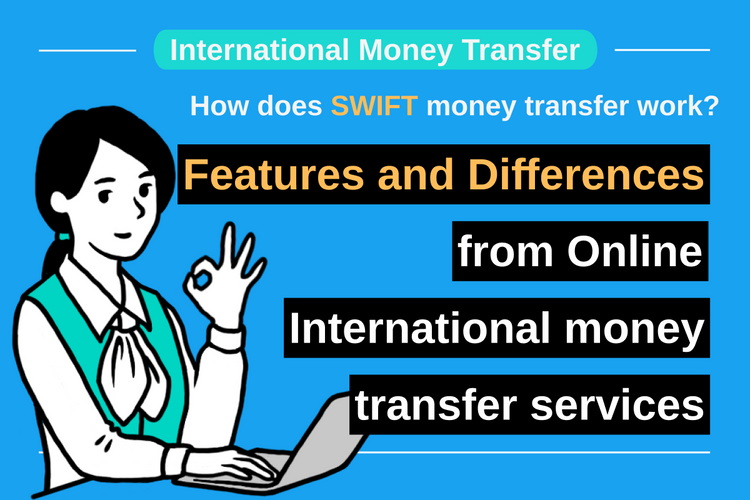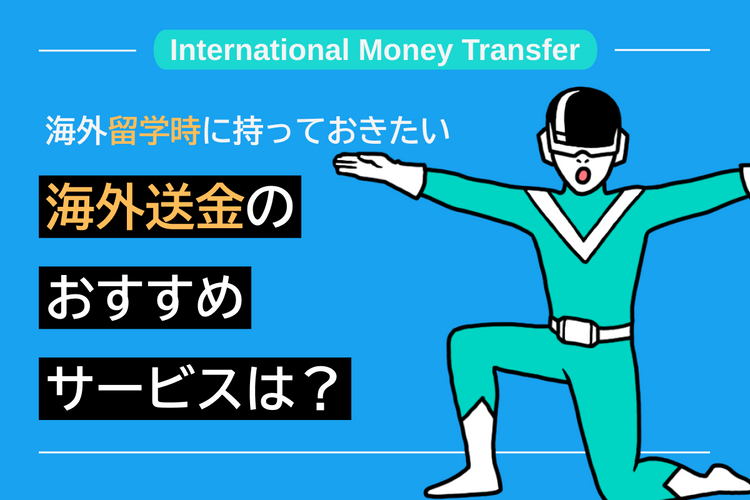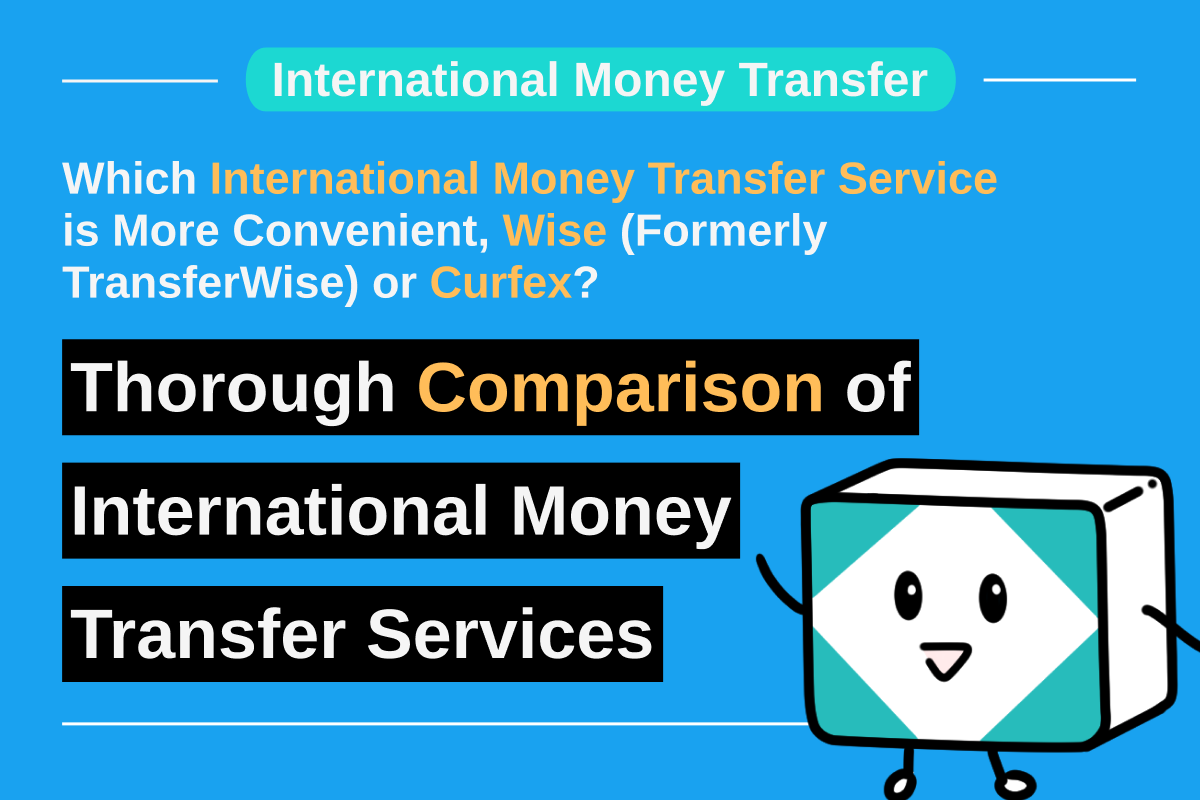Is Consumption Tax Due on International Money Transfers? Case Studies and How to File Tax Return

Do you need to support the living expenses of your child who is studying in the U.S.?
Do you live in South Korea and have plans to receive remittances from a friend in Japan?
If you live abroad or have family or friends living abroad, the money transfer should be processed through an international money transfer service.
In recent years, international money transfers have become more popular and accessible not only through banks but also through online services. Although this has made the procedure easier, many people may not yet be accustomed to the system, such as the various fees incurred due to currency differences and how the transferring amount changes depending on rate fluctuation.
One of the common questions that often arises is whether "taxes" are applied to international money transfers.
Without a proper understanding of the taxation of international money transfers, you may find yourself in violation of your tax obligations without even knowing it. Those who currently use or plan to use international money transfer services are well advised to check whether consumption tax and other taxes will be imposed on international money transfers.
In this article, we will discuss in detail whether taxes are imposed on international money transfers, which cases are subject, and how to report them.
Are International Money Transfers Subject to Consumption Tax?
First, let’s review whether international money transfers are subject to consumption tax.
Consumption tax is imposed when money is spent. So, in the case of international money transfers, it should be viewed as a tax that is imposed on the sender, not the recipient. As it turns out, no consumption tax is imposed on international money transfers.
The Consumption Tax Law in Japan stipulates tax exemptions, of one of which indicates that the consumption tax on fees incurred with international money transfers are tax exempt.
Consumption tax is imposed on monetary transactions in Japan. Many people mistakenly believe that international money transfers from Japan to foreign countries are subject to consumption tax since they are performed in Japan. However, these fees are exempt from taxation as they are defined as non-taxable.
When sending money overseas, various fees are imposed, such as transfer fees, exchange fees, and intermediary bank fees. As a result, in many cases you will end up needing more funds than initially expected.
But as far as consumption taxes are concerned, there is no need to worry about having to pay an additional amount for the fees incurred.
Types of Taxes Imposed on International Money Transfers
So, is there absolutely no need to worry about taxes at all when it comes to international money transfer transactions? The answer is no– there are taxes other than consumption taxes that are relevant to international money transfers.
The taxes listed below are those that may incur upon receiving international money transfers. Be sure to check them carefully in advance.
Taxes on International Money Transfers: Income Tax
First, we will look at income tax.
If the money received through international money transfer is income, income tax is due.
Income tax applies to money received as wages or earned through one's own business or other activities. Therefore, income tax is also imposed when you receive profits from overseas business development, and income from real estate held abroad is also subject to tax.
Some people think that income tax is levied only on work or business in conducted Japan, but be sure to remember that income generated overseas is also subject to taxation.
Taxes on International Money Transfers: Capital Transfer Tax
Another type of tax that may be relevant to international money transfers is the capital transfer tax.
Capital transfer tax is due on any money received through international money transfer that is deemed to be subject.
If the sender and recipient both have an address in Japan, the transfer is most likely be deemed subject to taxation. On the other hand, if one of the addresses is outside Japan, the criteria will be a little more complex.
The detailed conditions under which an international money transfer is subject to capital transfer tax are as follows:
Case 1: The sender is a Japanese national, and their address is in Japan
A capital transfer tax is incurred regardless of the recipient’s address.
Case 2: The sender is a non-Japanese national, and their address is in Japan
A capital transfer tax is incurred if the recipient is a Japanese national whose address is in Japan or who had a Japanese address within the past 10 years.
Case 3: The sender is a Japanese national and their address is outside Japan, but they have had a Japanese address within the past 10 years
A capital transfer tax is incurred regardless of the recipient’s address.
Case 4: The sender is a non-Japanese national whose address is outside of Japan
A capital transfer tax is incurred if the recipient is a Japanese national whose address is in Japan or who had a Japanese address within the past 10 years.
Case 5: The sender’s address is in Japan, and they haven’t had address in Japan within the past 10 years
A capital transfer tax is incurred if the recipient is a Japanese national whose address is in Japan or has had address in Japan within the past 10 years.
Reference: IRS
https://www.nta.go.jp/taxes/shiraberu/taxanswer/zoyo/4432.htm
Simply put, a capital transfer tax is incurred in the cases where the sender or recipient has an address in Japan either in the past within 10 years or present.
If you would like to see further details, you can check from the IRS website.
Which International Money Transfer Cases are Exempted from Taxation?
We have looked at the types of tax and cases subject to them. But there are also cases in which international money transfers are not subject to taxation.
In this section, we will provide some examples of cases in which taxation is exempted.
Transfer of Funds in Possession
The first case is the transfer of one's own funds to a domestic or foreign destination.
If you study or travel abroad for work, it is quite common to open a new account in the destination country in addition to your domestic one.
No capital transfer or income tax is imposed on the transfer of your own fund from your overseas account to your Japanese account, as it is merely considered a transfer.
If you’re worried about having to pay taxes every time you transfer your own money, there is no need for that!
Receiving Living Expenses
Likewise, no tax will be incurred for the receipt of living expenses transferred by dependent family members.
Money transfers to dependant family members are deemed as remittances of necessary living expenses for education or childcare. If you send money to your family members for studying abroad or overseas business trips, it is subject to tax exempt. In this case, the taxpayer is required to submit Documents Concerning Relatives and Documents Concerning Remittances to the withholding agent at the time of filing the tax return.
However, you should also be aware and careful that it may not be recognizes as living expenses if the money sent is used for other purposes.
Please note that this tax exempt only applies to dependent family members. Money transfers to friends who lived with you or to to family members who are not your dependents will not be eligible.
Taxes Incurred with Money Transfers to the U.S.
Now, let’s take a look at the types of taxes incurred when transferring money to family and friends, using the U.S. as an example destination.
When transferring money to the U.S., there is no consumption tax on the remittance fee, so there is no tax incurred on the sender's end.
On the other hand, the following taxes may be imposed on the recipient:
- Capital transfer tax
- Income tax
If the remittance is from a dependent family member and is for living expenses, it is exempt from taxation; otherwise, a capital transfer tax is due. In addition, income tax is due on money received from a company or from one's own business.
Be sure to check the classification of the fund to be sent first, and then check for any taxes that may be incurred.
Taxes Incurred with Money Transfers to China, Korea, and Thailand
Next, we will look at money transfers to Asian countries such as China, Korea, and Thailand.
There is no consumption tax is imposed on the remittance fee in this case, so again, there is no tax incurred on the sender's end.
However, the recipient may be subject to the following taxes:
- Capital transfer tax
- Income tax
As with remittances to the U.S., these remittances are also exempt from tax when sent by dependent family members as living expenses, but capital transfer tax is due on other remittances.
Even if it is not treated as a capital transfer tax, it may still be considered income tax if the money is income from a company or earnings from one's own business.
Please check in advance which classification the money you send applies to, so that you know whether or not it is subject to taxes.
How to Report Taxes Incurred on International Money Transfers
So, how should you report the taxes incurred on international money transfers? In this section, we will go over the steps and conditions of filing tax on international money transfers.
Tax Filing to the Tax Office and IRS
Income tax and capital transfer tax incurred through international money transfers are subject to the annual tax return.
A tax return is a procedure whereby income from January 1 to December 31 is reported to the government between February 16 and March 15 of the following year to determine the amount of taxes due.
It may seem difficult for those who have never done it before, but online tax filing has recently become available, saving the hassle of having to submit a number of documents to the tax office.
You can file your tax return using one of the following methods:
- Bringing the declaration documents to the tax office and completing the procedures
- Sending the prepared documents to the tax office by mail
- Completing the procedure online using e-tax
Please be sure to complete the procedure by the deadline using a method of your choice.
Should I File a Tax Return If the Amount is Less than 1M Yen?
If the amount received by remittance exceeds 1,000,000 yen, the financial institution is required to report this to the tax office. In other words, there is no reporting obligation to the tax office for remittances of 1,000,000 yen or less.
Many of you may be wondering, “does that mean I don’t have to file a tax return if the remittance amount is smaller than 1,000,000 yen?” The answer is; regardless of the amount, it must be declared as long as it is taxable.
Financial institutions are not obliged to report remittances over 1,000,000 yen, but that does not necessarily mean they don’t report them.
Regardless of whether you are obliged to report or not, the tax office may check whether you have declared your tax by remittance, so be sure to complete the procedure.
Will the Tax Office Find Out if I Don't File a Return?
If a taxpayer fails to file a tax return, there is a possibility that the tax office will inquire or conduct a tax audit as a check against income tax and capital transfer tax due to remittances, and find violations.
If the tax office finds a failure of tax payment, a delinquent tax will be added to the amount of taxes that should have been paid. Thi is like a penalty, so the more delinquent you are, the higher the percentage amount will be added to your tax bill.
You may feel lucky that you didn’t have to pay tax, but you will end up having to pay an extra amount as a result.
Is There a Refund for Taxes on International Money Transfers?
Income taxes incurred on money received through international money transfers are eligible for the foreign tax credit.
This is a refund for income earned in a foreign country for which both Japanese and foreign taxes have been paid, resulting in double tax payments.
To take advantage of the foreign tax credit, proof of payment of taxes incurred abroad is required when preparing tax return documentation. By submitting documents that confirm how much you have paid overseas for taxes when filing your tax return, you can receive a refund for double tax payments.
Tax returns tend to give the impression that you have to pay a lot, but if you file it correctly, you will be eligible for a refund for the amount you have lost. Make sure you complete the procedure as instructed by the relevant authorities.
Why Curfex is the Best Choice for International Money transfers
In this article, we have looked at the types of tax incurred with international money transfers.
When sending money overseas, it is essential that both the sender and recipient have good knowledge of taxes as they go through the procedure. Make sure to obtain accurate information, otherwise, you can be evading taxes without even knowing it.
Although it is mandatory to provide correct information when filing a tax return, many people may find it difficult to prove the record of all transactions, especially those who transfer money on a frequent basis.
Curfex is an international money transfer service that offers the issuance of a certificate of remittance.
Having a certificate with the correct record of the remittance allows for more accurate filing to the relevant authorities, thereby preventing problems related to taxes.
In addition, Curfex is also characterized by the lowest fees for money transfers in the industry.
With Curfex, there are no relay bank charges, which occur with bank transfers. While most banks add their own exchange fees to the actual exchange rate for remittances, Curfex uses the actual exchange rate without adding any unnecessary fees.
On top of that, Curfex is currently offering a fee waiver campaign for the first transfer.
Our commitment to delivering exceptional service sets us apart from the competition and ensures that our customers have a positive experience every time they use our service. Whether you have a question about fees, exchange rates, or anything else related to your money transfer, our team is here to help. We are dedicated to making your money transfer process as smooth and stress-free as possible, and we are always happy to assist with any concerns or issues you may have. So if you're looking for a reliable and customer-focused money transfer service, look no further than us!

If you are considering or have plans to send money overseas, don't miss this chance and sign up with Curfex!
References:
https://www.nta.go.jp/law/tsutatsu/kihon/shohi/06/05.htm
https://grancers-group.com/articles/countries_to_send_08
https://www.nta.go.jp/taxes/shiraberu/taxanswer/zoyo/4405.htm
https://www.nta.go.jp/taxes/tetsuzuki/shinsei/annai/gensen/kokugai/index.htm





Member discussion